
Do you have what you need to make your garden grow?


Garden Center
Store Hours
Mon-Sat:
6:00am - 10:00pm
Sun:
7:00am - 9:00pm
Curbside:
09:00am - 6:00pm
Location
Popular at Your Garden Center
Summer Popular Garden Supplies and More
Explore June Live Plants
Garden Project Calculators
;Resize=(703,395.44))
Grass Seed Calculator
When you're ready to seed your lawn, our calculator helps you estimate the amount of grass seed you'll need to get the job done.
;Resize=(703,395.44))
Mulch Calculator
Enter your preferred material, the square footage and mulch depth of the coverage space for accurate results.
;Resize=(703,395.44))
Fencing Calculator
We'll calculate the amount of fencing you should purchase based on your property needs.
Shop Outdoor and Garden Brands
Frequently Asked Questions About Gardening
How do I know what planting zone I'm in?
Check the USDA zone map, as planting zones have shifted over the years. Zones with higher numbers can plant earlier in the year. Choose plants that are meant for your zone and increase your odds of successful gardening.
What does direct sow mean?
If the soil is warm and pliable, consider planting your veggie, fruit, or flower seeds directly into your garden. This is called the "direct sow" method. Plant after the threat of frost is gone for the season, as sprouts and seedlings can't weather those conditions. You can also start your seeds indoors if you'd like. Consult your seed envelope for when and how to sow seeds.
Do you carry organic seeds and plants?
We offer many organic gardening options, including organic veggie seeds and fruit seeds, as well as organic flower and herb seeds that are subject to availability. We also carry the organic fertilizer to feed your plants and the organic soil to plant them in.
Do I have to harden off my seedlings before planting them outside?
Yes, if you raised plants indoors from seeds in your own plant nursery, harden them before you transplant them. Hardening allows your seedlings to adjust to outdoor life, spring rains, and temperature swings, making them more resilient against cold snaps. It slows their growth until they're strong and ready to take off during a spring warm front.
How do I prep for planting seeds or transplants outside?
Before you plant, make sure that the soil is healthy, your plant will have the right amount of sun, and it's warm enough outside. Check your seed package to see if it likes partial sun, full sun, or shade, as well as what time of year it should be planted. Space your plants as described for best results so your plant babies have room to grow big and strong.
Should I use peat moss starters or coir starters?
Seed starters, full of nutrients in pellets or pots, work for new and experienced gardeners alike. You don't have to use these starters if you're planting in soil, but you may want to. Starting seeds in peat pots works best for delicately rooted plants like carrots and beets, as well as flowers that need acidic soil. Some people prefer coir starters instead, as they have a neutral pH. Check what type of soil your plants need to help narrow it down, and chat with a garden center associate if you need more info.
Garden Project Ideas
The Home Depot Garden Center at Alhambra
Celebrate Springtime Gardening
It's time to start thinking of spring. Clean out the shed and sweep the gazebo to prepare for sprouts poking up, fragrant breezes, and warmer temperatures. Planting seeds indoors near a sunny window means you'll be ready to transplant young veggie plants and spring annuals when the frosts are through and the ground thaws. You might even want to sow organic seeds directly into the earth. What better way to start than by exploring your favorite local plant nursery?
Plant Hardiness Zones Explained
The first thing to learn when planting vegetables, spring flowers, and other seeds is your planting zone. Every location in the U.S. and its territories is sorted into blocks by climate. Find your zone on the USDA plant hardiness zone map and learn when to plant seeds.
For example, you could transplant bell peppers outdoors in mid-March in Zone 10, but not until the end of May in Zone 4. You'll have good results with plants that have your zone number or less. In other words, a Zone 5 garden can support plants listed as Zones 1–5. The timeframe to direct sow outdoors in your garden is often around a month later than the indoor start date. Be sure to read your seed packet for details. If you start them later than recommended, it's not ideal, but it will likely even out as time passes.
Gardening in Your Growing Zone
This area is in growing Zones 8 or 9, but it's desert, so utilize greenhouses to grow vegetables and herbs. Native plants like succulents, cacti, and other hardy desert shrubs will easily grow outside. Other beloved garden vegetables love the heat, like tomatoes, peppers, cucumbers, and squash. If you start them indoors and carefully introduce them outdoors in the shade, you can enjoy raising vegetables even in a dry climate. However, many spring flowers are sensitive to that much sun and heat, so research to find varieties that can handle the weather before planting outdoors.
An indoor garden of greenery is also lovely, so create an oasis within your home. A covered porch or sunroom is a great place to encourage plant growth, especially with plant stands and pots of all sizes. Your spring flower seed choices, whether they're annuals or perennials, can also often get an indoor start.
Plant Seeds Outside With Direct Sow
Planting seeds with the direct sow method, right into the soil, is another option. It doesn't give you as much organized planning in terms of reliability and spacing compared to indoor starts. However, if you like to go with the flow, follow the instructions on your seed package and try it out.
Prepare to deal with whatever hand nature deals you: Be ready for all your seeds to sprout, none of them to come up, and anything in between. Your seedlings will need to survive rain, wind, and sudden cold snaps, as well as rodents and bugs that crave tender greens. But if you're lucky, you'll get strong sprouts that are ready to grow all spring.
Start Seeds Indoors
If you're eager to get growing or would like more control in the care and feeding of seedlings, start your seeds indoors in your own plant nursery. In general, you can plant seeds indoors about a month before you can do it outside. Like direct sow, you push the seeds into the soil as directed on the seed packet, but that's where the similarities end.
You're responsible for giving them quality substitutes for rain and sunlight. Keep your seeds warm with warming mats and grow lights, water them carefully with a mister or watering can, then thin them as they germinate in groups of three. Give them a boost with a gently blowing fan as they lengthen into sprouts if you'd like. Harden them off to get them used to outdoor conditions, then transplant them into your garden when they're big enough.
Transplant Young Plants Into Their New Homes
You've raised your baby plants from seeds, watched them sprout, and carefully hardened them off to brave Mother Nature. By now, your plants have 3 or 4 true leaves — they'll look different from the miniature seedling leaves. When the ground is warm, and you're not expecting soaking rain, look into transplanting your small plants into their new outdoor home. These large seedlings that are ready to be planted can also be called "transplants" or "starts." In cases where you direct sowed, you may still want to shuffle plants around for the best spacing and sun. That's also a transplant situation, as is repotting plants into larger pots.
Protect Your Garden With Mulch
Finish it all off with mulch and compost. Compost enriches the soil so your garden can grow even better. It may help foster larger and stronger plants that bear more fruit and flowers. Mulch controls weeds and keeps the soil moist. Compost and mulch can be purchased in-store or created at home. The next time you're looking for "mulch near me," stop by the Garden Center to get the right amount.
Greet the Spring
Late winter into early spring is an exciting time in the world of gardening. Plan your garden and landscaping, prepare to fertilize your lawn, and browse The Home Depot nursery to find inspiration on which spring flowers to plant when the weather warms. For those without lawns, consider adding artificial grass, a pellet grill, or an outdoor rug to your patio or balcony. Shop for the soil, seeds, and fertilizer you need in the aisles of your Alhambra Garden Center, online, or on our mobile app. Let's get growing together.
Nearby Stores
Find Another Store
3500 Market Place
Monterey Park, CA 91755
4.00 mi
Mon-Sat: 6:00am - 10:00pm
Sun: 7:00am - 8:00pm
2055 N Figueroa St
Los Angeles, CA 90065
4.88 mi
Mon-Sat: 6:00am - 10:00pm
Sun: 7:00am - 8:00pm
9700 Lower Azusa Rd
El Monte, CA 91731
4.94 mi
Mon-Sat: 6:00am - 10:00pm
Sun: 7:00am - 8:00pm

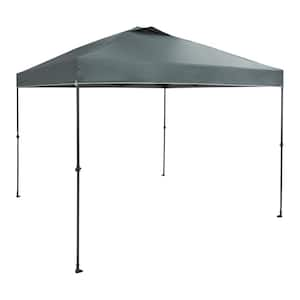
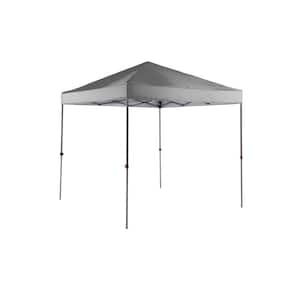
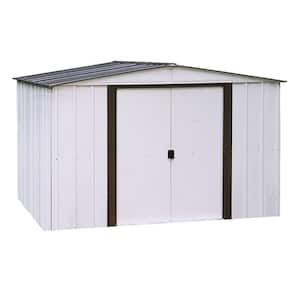
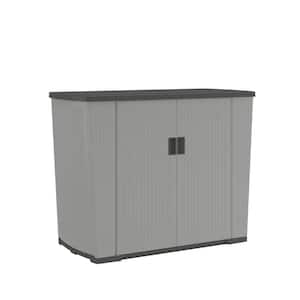
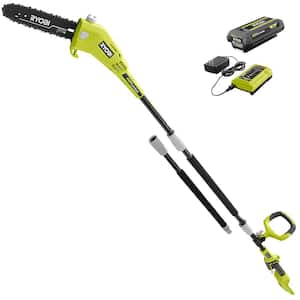
)
/17_514245_S_012_Product%20Image%20(square).jpg?im=Resize=(300,300))
)
)
)
;Resize=(300,300))
/2023_P2_Rain_Barrels_Product%20Image%20(square).jpg?im=Resize=(300,300))
)
)
)
)
;Resize=(300,300))
;Resize=(300,300))
;Resize=(300,300))
)
;Resize=(300,300))
;Resize=(300,300))
)
/12_SOIL_B_0420_Social%20media%20(square).jpg?im=Resize=(300,300))
;Resize=(300,300))
;Resize=(300,300))
;Resize=(300,300))
;Resize=(300,300))
)
;Resize=(300,300))
)
;Resize=(300,300))
;Resize=(300,300))
/18Patio_Camden_Seagrass_5pcSeating_Planters_302468736_DTL3_L_Social%20media%20(square).jpg?im=Resize=(300,300))
;Resize=(300,300))
;Resize=(300,300))
)
;Resize=(300,300))
;Resize=(300,300))
;Resize=(300,300))
;Resize=(300,300))
)
;Resize=(300,300))
)
)
.jpeg?im=Crop,rect=(363.69230769230774,1.2307692307692308,958.7692307692308,958.7692307692308);Resize=(300,300))
;Resize=(300,300))
;Resize=(300,300))
)
)
;Resize=(300,300))
)
)
;Resize=(300,300))
;Resize=(300,300))
)
;Resize=(300,300))
)
)
;Resize=(300,300))
;Resize=(300,300))
)
;Resize=(300,300))
/Capello_Spring_Mum_10in_Social%20media%20(square).jpg?im=Resize=(300,300))
;Resize=(300,300))
)
)
)
)
)
;Resize=(300,300))
)
)
;Resize=(300,300))
;Resize=(300,300))
;Resize=(300,300))
)
)
;Resize=(300,300))











































